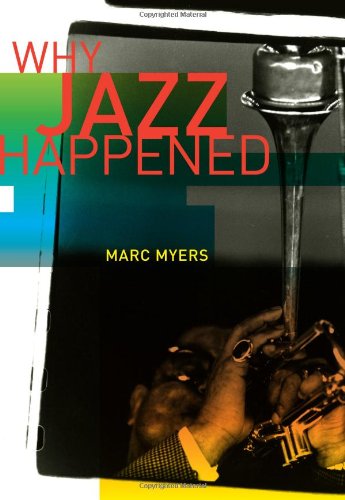Articles by David Rickert
Buddy Collette: Four Classic Albums

by David Rickert
Like many of his fellow West Coast musicians, Buddy Collette was proficient on multiple instruments. He could play alto and tenor sax, but tended toward the clarinet and the flute for most of his recording career. His solo records were as light and effortless as most jam form the West Coast tended to be at the time, and they are very pleasant, if a bit toothless at times. There's no doubt that Collette was a main figure of the West ...
read moreBob Cooper: Four Classic Albums

by David Rickert
Bob Cooper was one of the greats of the fifties West Coast scene. He was a formidable improviser whose proficiency on multiple instruments made him highly sought after for studio work, and was also a talented arranger whose had plenty of work in the studio on both big band and small group recordings. However, he seldom recorded as a leader, and most of the sessions he did record have been out of print for a long time or never released ...
read moreTeddy Edwards: Four Classic Albums

by David Rickert
Teddy Edwards was a formidable tenor player on the '50s and '60s West Coast scene with a warm and congenial tone reflected the laid-back thoughtfulness of the West Coast scene with enough soul to indicate he was listening some Coleman Hawkins in the midst of the Lester Young platters. His own recordings were a typical mix of originals and standards, many of which were brief enough to fit comfortably on a 78. After being sidelined for a few years with ...
read moreEveryone's Buzzin': The Complete Bee Hive Sessions

by David Rickert
The idea behind Jim and Susan Neumann's Bee Hive label was simple: gather together a bunch of great musicians for recording dates and let them play whatever they wanted. The sessions were led by talented musicians who may not have received the recognition they deserved in the jazz heyday of the fifties and early sixties -names like Sal Salvador, Ronnie Mathews, and Dizzy Reece to name a few--but who still had plenty to say. And for sixteen recording sessions, the ...
read moreErroll Garner: Erroll Garner: The Complete Concert By the Sea

by David Rickert
Erroll Garner's Concert by the Sea was a huge hit when it was released in 1956 and became one of the few jazz records that everyone seemed to own. One listen is all it takes to understand the wide appeal of this live date from the Sunset Center in Carmel, California. Garner, the happiest and most extroverted of pianists, works through a program of well-known standards with technical brilliance and dazzling wit in a tour-de-force of stride, boogie-woogie, ragtime, and ...
read moreRed Norvo: Four Classic Albums

by David Rickert
Red Norvo played the vibes while leading his own band during the swing era and grew into smaller groups in the forties and fifites once the practicality of leading a large ensemble became too much. He was one of the first to specialize of what has always been somewhat of an unusual instrument for jazz, but his nimble soloing and chords provided a template for others like Milt Jackson to follow. The four sessions collected here are from his fifties ...
read moreRoland Kirk: Four Classic Albums

by David Rickert
Roland Kirk was arguably the most exciting soloist the jazz world has ever seen. Blind since childhood, Kirk developed a unique sensitivity to sound that he parlayed into all sorts of interesting ideas, most notably the ability to play two or three instruments simultaneously. For a while the vaudeville nature of this trick overshadowed his prodigious talents as a soloist. He was capable of great tenderness as well as bursts of aggressive lines and knew how to construct a solo ...
read moreDave Pell: Four Classic Albums

by David Rickert
If you were to wander up and down the West Coast in the fifties you were more likely to find Dave Pell playing dances on college campuses than in clubs. Despite filling his octet with seasoned musicians who could really cut loose when given the chance, Pell's studio recordings always have a hint of crepe and balloons about them. They represent the extremely well-mannered style of West Coast jazz,and are pleasant almost to a fault.The first ...
read moreMarc Myers: Why Jazz Happened

by David Rickert
Why Jazz HappenedMarc Myers248 pagesISBN: 978-0-520-26878-4University of California Press2012Many books have been written on how jazz happened, but few have focused on why jazz happened. In Marc Myers' new book, Why Jazz Happened, he does just that: explore the economic, technological, and social forces that allowed jazz to flourish. This is not a book about the artists that shaped what jazz became, but rather a book dealing with ...
read moreLee Konitz: Four Classic Albums

by David Rickert
Besides being one of the few altoists that emerged in the 1950s that doesn't sound like Charlie Parker, Lee Konitz was a true musical adventurer whose explorations in free jazz, electronic instruments, and just all around anything goes sessions resulted in some of the most exciting music that came out of the fifties and beyond. His playing, which is marked by a detachment and intellectualism that can sound rehearsed, isn't for everyone, but there's no doubt that Konitz has, and ...
read more















